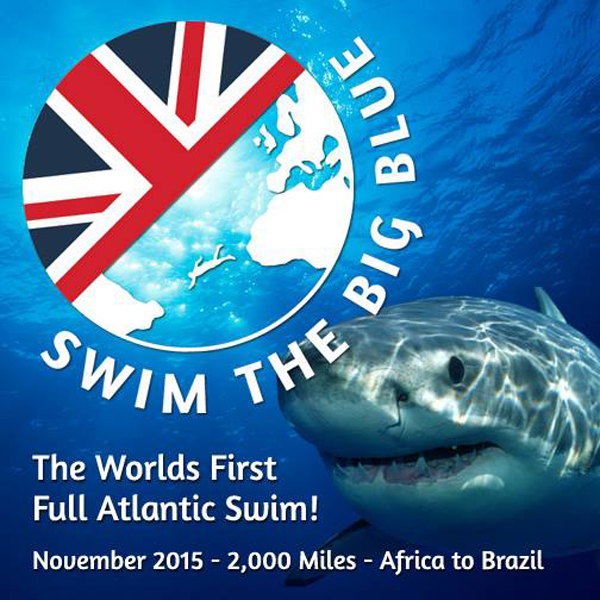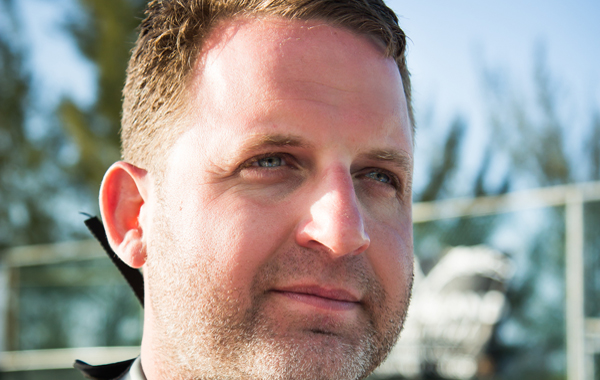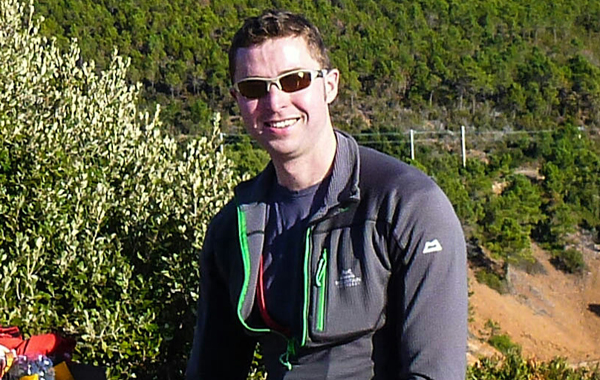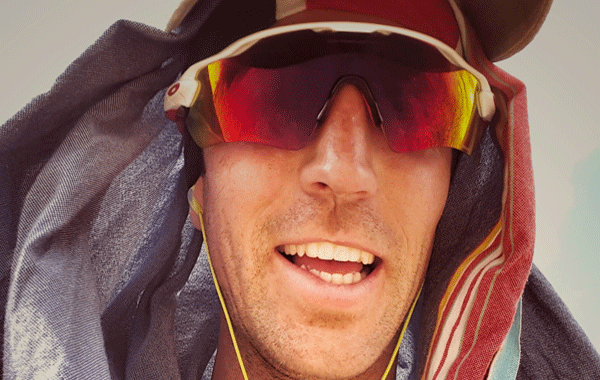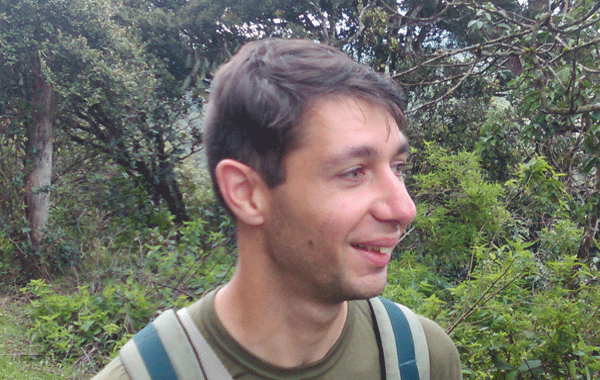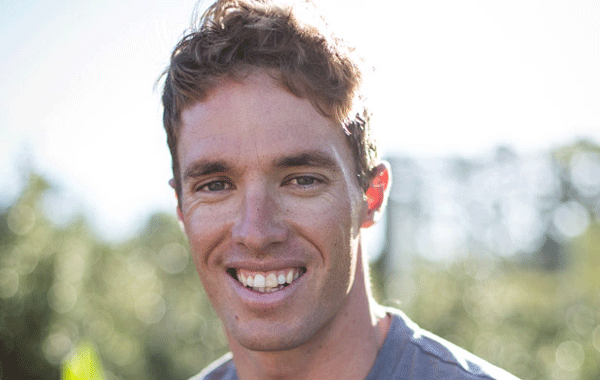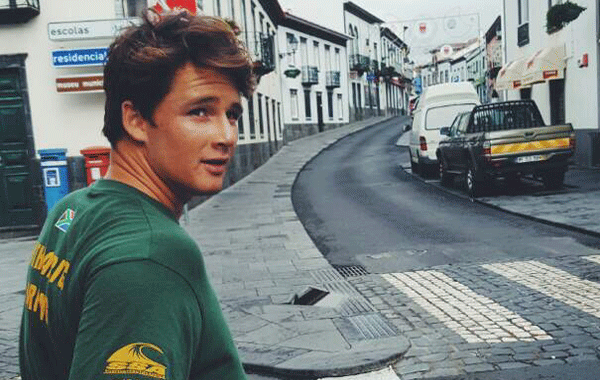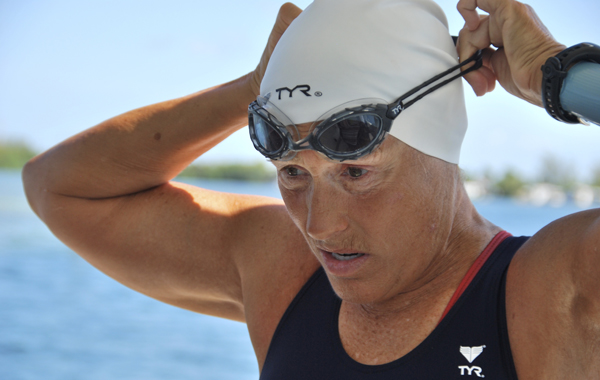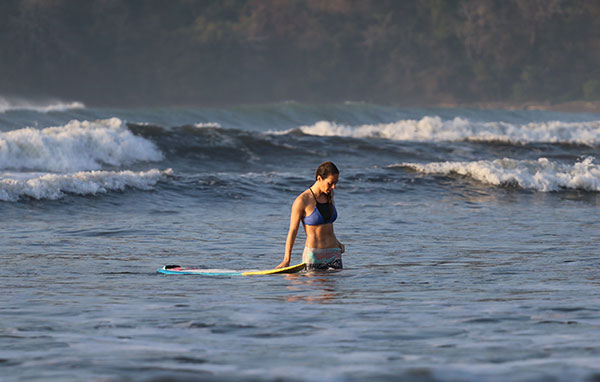BEN HOOPER, 36, is currently training in Florida where the sea and air temperatures are similar to those he will experience during his transatlantic swim.
The swim will take place on a daily basis and will be broken down into a maximum of two six-hour periods (or up to 12 hours per day). Between the two six-hour sessions, there will be two hours of rest on the support boat. During this rest period (and overnight of up to 10 hours), Ben will be aboard the boat where he will sleep and consume a high carbohydrate, fat and protein diet as well as rehydrating. He may burn up to 12,000 calories per day.
Ben will be swimming around two to two-and-a-half miles an hour, in sea temperatures of around 20 to 30 degrees while battling currents of one to seven knots.
The Swim, The Big Blue Expedition, came about two years ago when Ben had reached a low point in his life. He was very depressed and knew he had to change things to have a future for him and his daughter.
He said: “The swim was an idea I had been sitting on for a long time. In fact, since I was five-and-a-half and faced near death drowning in a pool in Belgium. I was lucky to survive but this negative turned into a positive, driving my long term fascination with the ocean and its wildlife.
“I have always been sporty and had previously taken part in long distance swimming and triathlon events. I thought ‘now is the time’ and I started pulling a team around me – a challenge of this scale needs professional assistance. I left my job and made swimming training and expedition management my full-time job.”
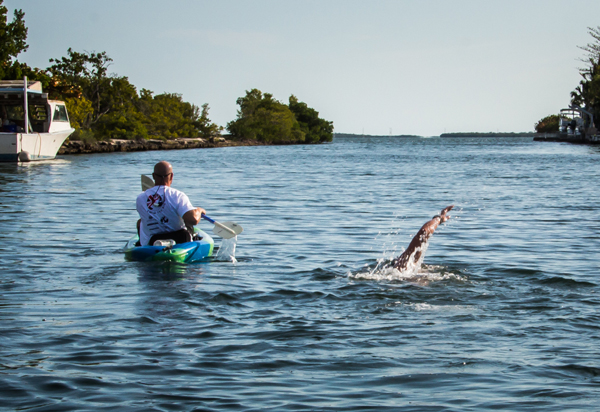
Training each day since November 2013 life has been tough for Ben and it will get tougher as he builds up to the main swim. From November 2013 to February 2015 Ben had swum 3,150km (1,957.30 miles), training in indoor swimming pools around the area he lives in the Cotswolds as well as in open sea around the Mediterranean, stage swimming up to ten miles each day. At the start of 2015 Ben started to train in Florida, where most of his nine person crew are from. Now with only five months to go before the ‘Swim The Big Blue’ event takes place, Ben is putting in even longer hours of stage swimming in the sea in preparation for the 2,000 mile swim.
With further endurance training over the next few months and several swimming challenges ahead of him, Ben will have covered close to 2,000km by November 1. In addition to his swimming training, he spends several hours a week in the gym, cycling and doing yoga.
Training out of Key West is not as glamorous as it sounds but it is fundamental to his overall training programme. It provides him with a distance swim in ideal sea temperatures and helps him overcome the difficulties of swimming not only in sea temperatures in excess of 32 degrees but also similar air temperatures. Key West is ideal as it affords Ben the opportunity to swim in two different oceans: the Gulf of Mexico and the Atlantic Ocean. He is also planning a stage swim of nearly 200 miles from Key West to Miami.
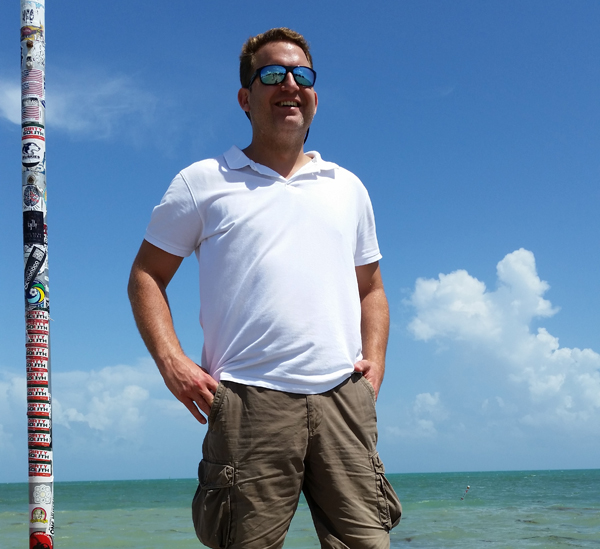
Ben said: “The Key West/Miami swim is one of many distance swims I will be taking part in during the months leading up to the Swim The Big Blue Atlantic challenge. It is good to test out all the shark defence equipment together with the shark repellents and have my team working around me.
The heat does get oppressive even when you are in the water and I can assure people back in the UK, that this is no holiday! It is physically and mentally challenging. People in the town where I live no doubt are wondering why I am not doing my training swimming across the English Channel – simple answer, the sea conditions are nothing like those I will be facing when I swim across the Atlantic. The water temperatures are much colder and it takes as much endurance to swim in the heat as it does in the cold.”
During his time in Florida, the Swim The Big Blue Team will be testing out his shark protection and defence with his US team of shark safety experts as shark attacks are one of the many significant dangers he will face during the 2,000-mile swim.
The transatlantic swim will see Ben compete against the elements and himself, and with varying temperatures, sea conditions and rough seas, he will need to have appropriate swim clothing available to ensure swimming and safety can be maintained. He will be wearing or surrounded by at least one shark shield device and the boat be equipped with a counter-shark device and shark-safe chemical repellents.
Ben is hoping to be the first person to swim an ocean in full. He is also going to be the first person to explicitly and transparently detail his swim, swimming the exact mileage of the intended crossing. The swim will have an independent observer logging it for the Guinness World Records.
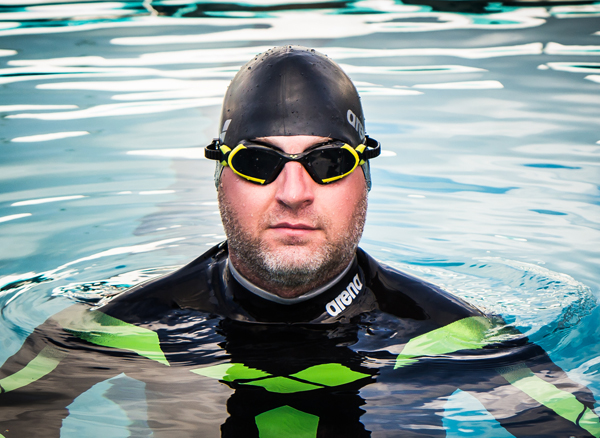
“I don’t want to take anything away from others who say they’ve swum the Atlantic,” said Ben. “But what makes my trip different is that it is transparent – we will be logging all details, all with a GPS, miles swum with current and without. It will be filmed for a documentary and people will be able to watch my trip online with daily postings on YouTube and social media. All marine logs etc will be available afterwards and you can follow us on our webs-app to keep updated. Every single mile must be swum for the record and our charities.”
The boat and crew will note the GPS position of each swim entry and exit, and will account for drift in order to add any vacant distances back into the swim or to the end of the swim, thereby ensuring the whole distance of the originally intended route is completed. The boat will take a 6,000km sailing route nearly, to include the 3,000km swim of the straight line distance between continents, therefore ensuring that all drift is accounted for within the swim and not detracting from completing every single mile and achieving the first true transatlantic swim.
As a further measure, the option of use of a sea anchor may reduce the drift ensuring that the total mileage spent out of the water is minimized, recorded and still swum before the end of the expedition: a total of up to 2,000 miles in approximately 120 days; 128,720 lengths of a 25m swimming pool; 3.21 million meters of open ocean using around a total of 2.1 million strokes depending on fatigue, weather and sharks – the target is up to an English Channel swim distance per day. Every detail will be logged, independently observed and verified and with filming and video diary will give full and transparent accounts of the expedition and its support team.
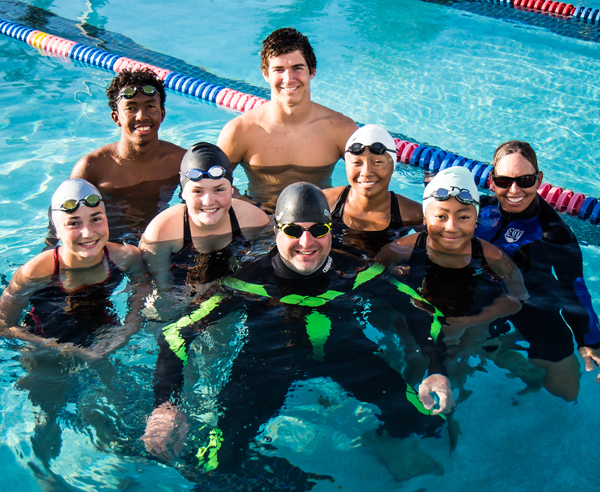
Ben Hooper’s Atlantic endurance will also be conducting world class research in psychology of performance, endurance nutrition and health (conducted by Hartpury College in Gloucestershire, part of the University of Western England) and medics will conduct immunology research. Marine biology and environmental research into micro-plastic marine pollution will be conducted by the University of North Carolina Wilmington.
He will also be raising money for three charities: SOS Children, which provides orphans and vulnerable children with a stable and positive family life, Maggie’s Cancer Care Centre in his home town of Cheltenham and Addaction, a leading drug and alcohol charity based in London.
When Ben says goodbye to his six-year-old daughter, Georgia, and heads off to West Africa to start his swimming expedition, he will hold her dear to his heart as she is the motivation for all that he is doing.
He said: “I find it inspiring how primary school children, particularly those from Charlton Kings Junior School in Cheltenham, have got behind my swim. They understand that I am an ordinary man setting out to achieve the extraordinary and prove that nothing is impossible if you work hard enough to achieve your goal. The children have really got behind me and their support spurs me on. When I started the Swim The Big Blue School’s Swimming Week at Charlton Kings Junior School, I wanted to inspire children, particularly those who thought swimming a length of the school pool was impossible. When those children achieved what they thought was impossible, it inspired me to be more determined than ever to get across the Atlantic.
The memories of that week will stay with me, not only during the swim, but for a lifetime. When the going gets tough, and I know it will, I will think of what the pupils at CKJS have done and that will drive me forward. The children have gone above and beyond my expectations.”
